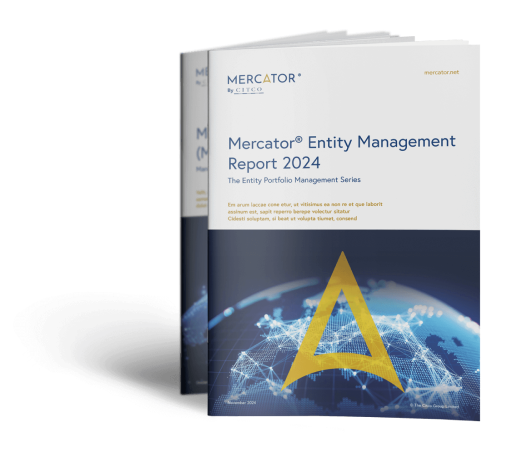The information contained in this document is marketing material and for informational purposes only. The information contained in this document is presented without any warranty or representation as to its accuracy or completeness and all implied representations or warranties of any kind are hereby disclaimed. Recipients of this document, whether clients or otherwise, should not act or refrain from acting on the basis of any information included in this document without seeking appropriate professional advice. The provision of the information contained in this document does not establish any express or implied duty or obligation between Citco and any recipient and neither Citco nor any of its shareholders, members, directors, principals or personnel shall be responsible or liable for results arising from the use or reliance of the information contained in this document including, without limitation, any loss (whether direct, indirect, in contract, tort or otherwise) arising from any decision made or action taken by any party in reliance upon the information contained in this document. © The Citco Group Limited, December 2024.
Transparency in Corporate Governance – A UK sea-change
2022 and 2023 have seen and will see a sea-change in transparency and accountability in the company affairs of the United Kingdom (UK) and the role of Companies House; perhaps the biggest changes in this element of company law since the Companies Act 2006 – the largest piece of legislation on the statute books.
Hastened by events in Ukraine – and flawed because, perhaps, of the haste, the first piece of legislation was the Economic Crime (Transparency and Enforcement) Act 2022. This required overseas companies which held registered land in the UK to identify and verify the identities of their ultimate beneficial owners; or if there were none (because the shareholdings were all less than 25%) the “managing officers” of those entities. A transitional period for registering this information ran from 1 August 2022 to 31 January 2023, but in this period only 19,510 out of 32,440 registered overseas organisations (just those holding property) had disclosed their beneficial owners.
The process itself is burdensome. It requires not just the identification of the owners or (not clearly defined) managing officers, but also the verification of their identities in accordance with specific but rather vague regulations, by members of certain professions who have been registered for that purpose. Few law firms appear to have registered to carry out verification, because this is considered a risky activity – one the Law Society has expressed great caution about.
Official guidance characterised these changes as bringing the process into line with that the persons with significant control (PSC) regime, but in trust it goes a lot further than those provisions. It is not, as with the PSC provisions, a case of giving information to be filed as-received; the verification is thorough, with criminal provisions not only on the entities and all their directors for providing false or misleading information, but also on the verifiers for undertaking the verification and registration process on behalf of those entities without sufficient rigour. Verification may entail an extensive examination of overseas company registers, translated; sourcing advice from lawyers in the relevant jurisdictions; and verifying key identification documents. For a General Counsel, this is a lengthy, laborious process and one where they are inclined to put up the shutters – not wanting to trouble and inconvenience their directors or beneficial owners with bureaucratic requirement. And yet the verifiers must refuse to verify unless they have the information they need. Of course this creates a conflict and is perhaps why many law firms do not wish to carry this out for their own clients.
We said that this was the first part of the legislation, the second, the Economic Crime and Corporate Transparency Bill, for UK Companies, will provide inter alia:
- Verification of identity for directors, beneficial owners including persons with significant control (PSCs), and those making a filing, such as corporate service providers.
- Individuals being prevented from acting as a director unless and until their identity has been verified, either by a regulated corporate service provider or the Registrar.
- Beneficial owners that are corporations having to verify the identity of one of their officers.
- The maintenance of an “appropriate” registered office and an email address for the receipt of documents, meaning that documents can properly be served there and will come to the company’s attention.
- Committing a criminal offence by the company and every responsible officer for failure to give an appropriate address.
- Giving the Secretary of State new powers to impose criminal sanctions against authorised corporate service providers for failing to keep accurate records, which will be punishable by up to two years in prison or a fine.
Much of the detail on how the verification will be carried out will appear in regulations, and we expect that there will be some significant delay because the infrastructure to make the changes – to change the function of Companies House from the recorder of information provided to it, to officious gatekeeper, will be considerable.
The penalties on companies and their directors for giving incorrect information or false verification will be a significant risk and deterrence. The purpose is, of course, to deter unwelcome individuals and companies, and prevent incorrect information being filed. The burden, though, will fall on all companies, and be a significant governance imposition. For small companies with little infrastructure, it could be confusing and easily infringed. For corporate entities and subsidiaries, it will be an administrative headache without any real upside.
It could deter the unsavoury; but it might be a price worth paying for them. Instead, it may deter enterprise and remove the ease with which companies can be incorporated in the UK. That has always been a benefit but also a vulnerability. It appears that the response to the vulnerabilities now has the upper hand.
Paul Berwin
Head of Corporate, Berwins Solicitors

